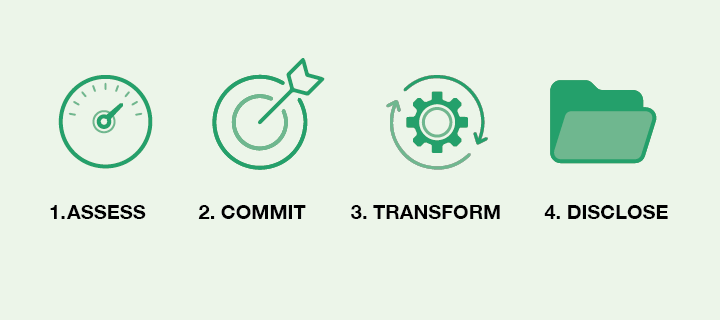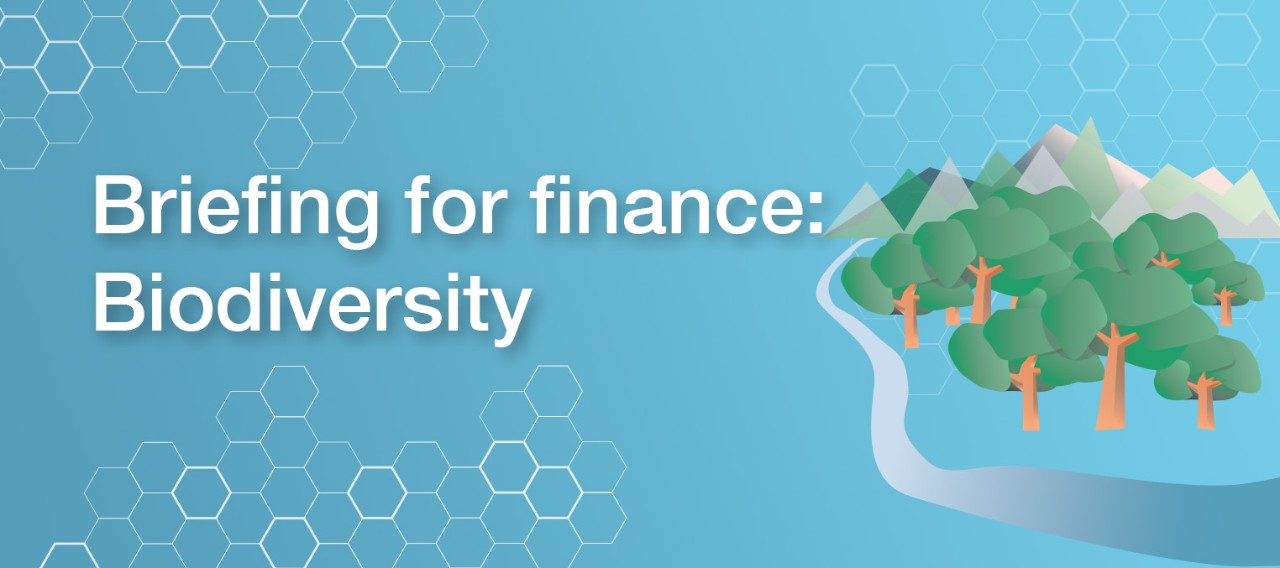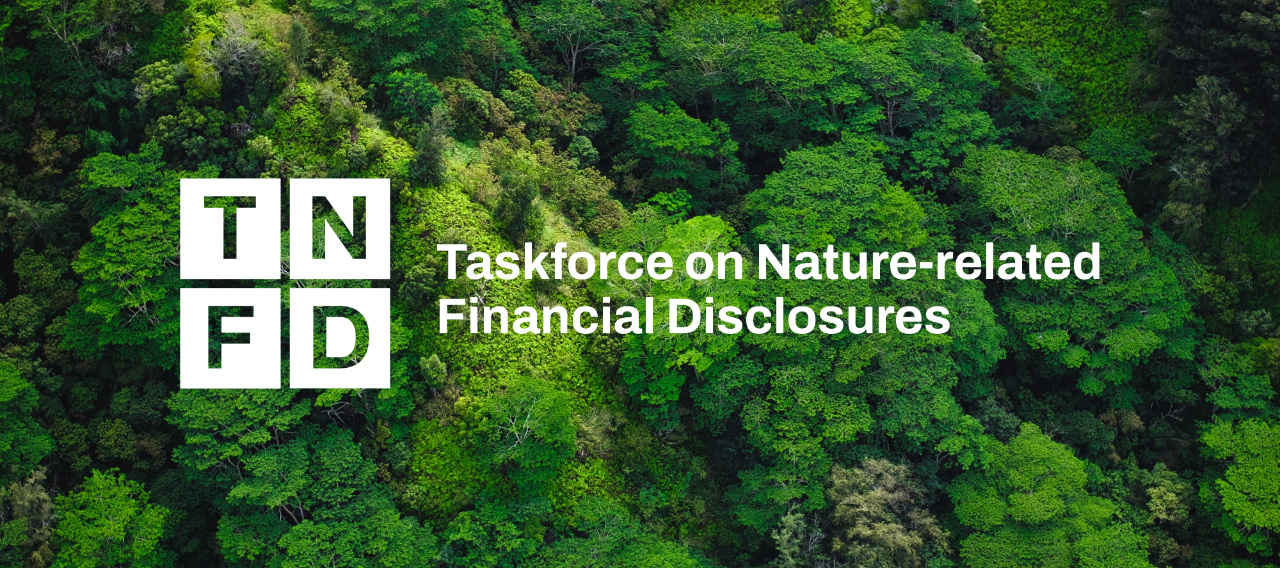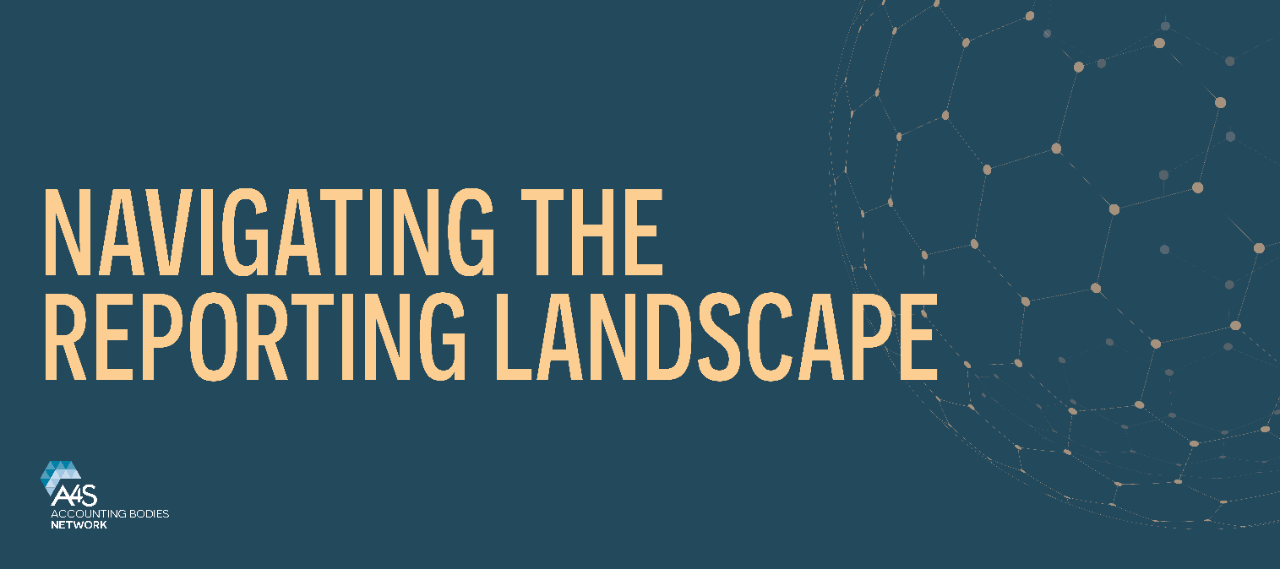Nature
On this page:
- Why we need a nature positive economy
- The role of the finance function in helping their organization to deliver nature positive outcomes
- The role of capital markets in creating a nature positive economy
BACKGROUND
Nature's lack of visibility in our financial system means that it is being destroyed at an alarming rate. The resulting collapse in ecosystems and biodiversity presents an existential risk to the economy without urgent action.
There is a pressing need for organizations to identify their nature-related impacts, dependencies, risks and opportunities, embed them into their decision-making processes, and disclose and report on their progress. Finance leaders can play a crucial part in this work and the move towards a nature positive global economy.
A4S's work in this space includes guidance, thought-pieces and updates to help equip finance professionals with the appropriate skills, tools and knowledge to help their organization move towards nature positive actions.
Why do we need a nature positive economy?
The scientific consensus is that we need to halt the loss of nature by 2030, and aim for its full recovery by 2050, to avoid catastrophic consequences. Businesses, the finance sector and regulators therefore need to move to a nature positive economy at speed.
We are destroying the world's habitats extremely quickly, with most of the loss occurring within the last 50 years. We have already lost 85% of the world's wetlands and one-third of its forests. This destruction has a catastrophic impact on biodiversity. Global populations of mammals, birds, fish, reptiles and amphibians, on average, have plummeted by more than two-thirds since 1970.
From an economic perspective, it is estimated that nearly US$10 trillion in global GDP could be lost by 2050 if ecosystem services continue to decline. The international and regulatory community are therefore increasingly focused on the importance of nature. Bold actions and targets were agreed at the UN Biodiversity Conference, COP15. This means that more attention is being paid to local nature preservation, policies that encourage sustainable use of natural resources and a move to mandatory disclosures by large organizations. There is also likely to be increasing consolidation of methodologies and frameworks to help organizations deliver on these requirements. Increased disclosure should allow the market to price in nature-related risks and opportunities so that capital flows in the right direction.
A nature positive world presents opportunities for organizations that are willing to take bold actions for nature. Organizations that understand, manage and disclose their nature-related impacts, dependencies, risks and opportunities will be both more resilient and more attractive to investors and consumers.
What is the link between nature and climate change?
The science is clear – we cannot limit global warming to 1.5°C without addressing nature loss, and we cannot reverse the loss of nature without a stable climate. A healthy natural world is also key to meeting many of the Sustainable Development Goals.
Nature-based solutions will be an important tool to help solve the climate crisis and could help deliver around one-third of the net emissions reductions needed by 2030.[i] Organizations will therefore need to understand the links between any climate change and nature targets and where there are trade-offs or common solutions.
There has been a dramatic shift in business awareness and response to the climate crisis in recent years. The size and scale of the nature-related risks we now face, though, means that we need the response to nature loss to be far more rapid.
The climate response has created a path that the response to nature loss can follow. For example, in reporting, the Taskforce on Nature-related Financial Disclosures (TNFD) used the same four pillars as the Task Force on Climate-related Financial Disclosures (TCFD), making it easier for organizations to adopt and implement the TNFD framework.
What is the role of CFOs and finance teams?
The finance function has a crucial role to play in driving progress towards a nature positive economy. However, many in the business and finance community struggle to understand their role.
The A4S Finance Leaders' Sustainability Barometer in 2022 found that almost half of respondents felt their organization had made little or no progress in mitigating the risk of biodiversity loss and depletion of natural resources.
Finance professionals can make a difference by:
- Assisting with the assessment of nature-related impacts, dependencies, risks and opportunities by ensuring underlying data is robust, comparable and reliable and can be trusted by decision makers
- Ensuring any targets set are robust and verifiable, and accurately tracking and reporting performance against targets
- Embedding nature positive outcomes within organizational decision-making processes, which can include integrating nature into management information, capital budgeting and expenditure evaluation, risk and compliance processes, and stakeholder relations
- Building capacity within finance teams to ensure the necessary knowledge, skills and information systems are in place to drive and implement change
- Raising and allocating the funds needed to implement nature positive solutions
- Leading the organization's interaction with the capital markets, including developing disclosures in line with TNFD
A4S works with CFOs and their teams to explore the practical steps that they can take to make progress towards a nature positive value chain.
What is the role of the financial sector?
With trillions invested worldwide, the investor community plays a significant role in determining whether a nature positive economy can be achieved. Investors can make a difference by:
- Recognizing biodiversity loss as a potential source of economic risk and responding accordingly
- Driving capital towards the best ideas and enterprises, being a catalyst for innovation, opportunity and dynamism in achieving a nature positive economy
- Leading an integrated approach to addressing climate and nature-related issues, and expecting the same from others throughout the investment chain
- Influencing organizations to make disclosures in line with TNFD
Key terms
- Nature – the natural world, with an emphasis on the diversity of living organisms (including people) and their interactions among themselves and with their environment.[i]
- Nature positive – an evolving term typically used to refer to the global aim to halt and reverse nature loss by 2030 (with a 2020 baseline) with a view to full recovery by 2050. Achieving a nature positive target for an individual organization is highly complex and would require a whole value chain approach. Organizations are therefore encouraged to work towards a nature positive economy.
- Biodiversity – the diversity of all living things, and a subset of nature. A high level of biodiversity boosts the productivity of ecosystems and therefore increases natural capital. Importantly, it also increases the resilience of an ecosystem to climate change.
- Natural capital – the stock of renewable and non-renewable natural resources (eg, plants, animals, air, water, soils, minerals) that combine to yield a flow of benefits to people.[ii]
- Ecosystem – a community or group of living organisms that live in and interact with each other in a specific environment,[iii] eg a tropical forest.
- Ecosystem services – the benefits to people from ecosystems, such as timber, genetic resources ('provisioning services'); pollination, water regulation, climate regulation ('regulating and maintenance services'); and recreation and mental health ('cultural services') and soil formation (‘supporting services’).[iv]
- Abiotic services – the benefits to people that do not depend on ecological processes but arise from fundamental geological processes and include the supply of minerals, metals, and oil and gas, as well as geothermal heat, wind, tides, and the annual seasons.[v]
[i] Díaz, S et al (2015) via TNFD
[iv] Adapted from the Millenium Ecosystem Assessment, 2005
A4S RESOURCES
Our guidance can help you understand the nature landscape and to navigate actions towards nature positive outcomes, wherever stage you are at.
UPDATES
WIDER RESOURCES
These resources can give you a greater understanding of the some of the organizations working in this space and tools that are available.
Natural Capital Protocol
The Natural Capital Protocol provides guidance on how to conduct natural capital assessments.
Science Based Targets Network (SBTN)
Science Based Targets Network (SBTN) helps organizations develop science-based targets for nature, including freshwater, land, ocean and biodiversity, to complement the Science Based Targets initiative (SBTi).
The Business for Nature Coalition
Business for Nature is a global coalition that brings together business and conservation organizations and companies. Together, the coalition demonstrate and amplifies a credible business voice on nature. They have produced high-level actions for businesses as well as help to direct commitments on nature. A4S is a member of the Business for Nature Coalition.












